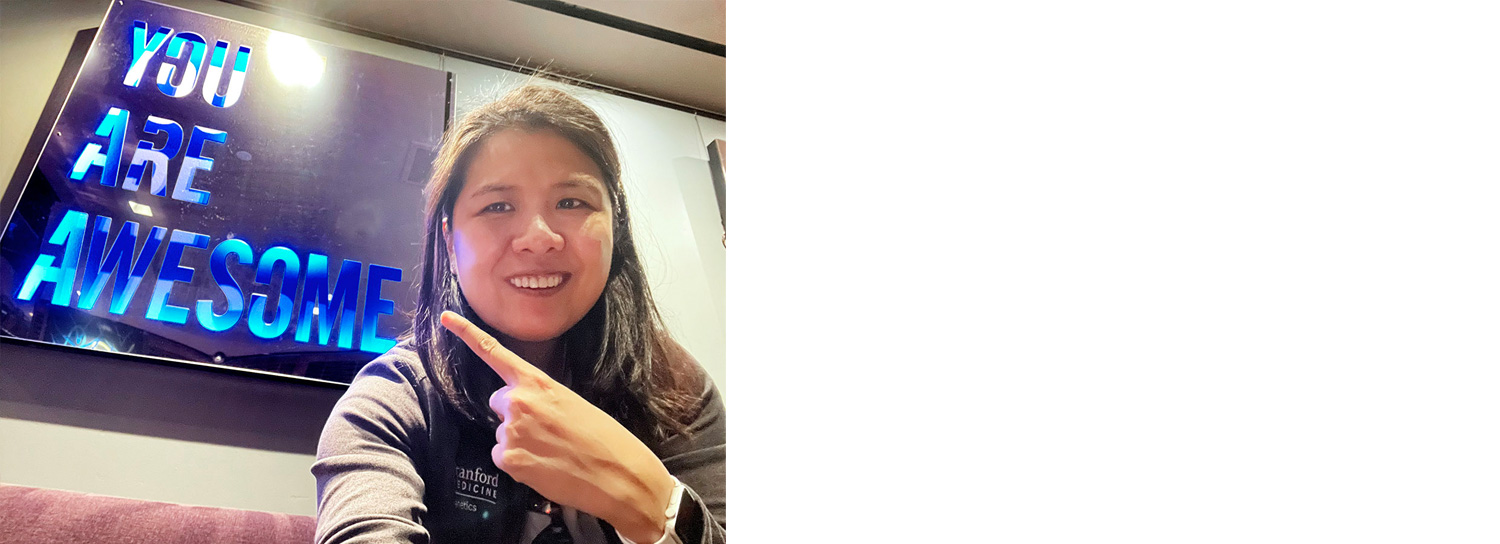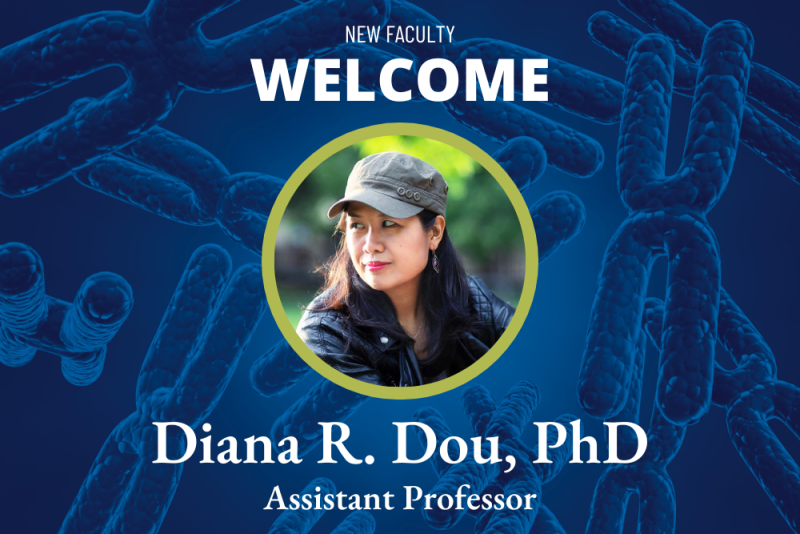
We are thrilled to announce the addition of Dr. Diana R. Dou from Stanford University to our faculty. Dr. Dou’s research focuses on the molecular mechanisms underlying sex differences in autoimmune diseases. Her expertise in RNA biology and cutting-edge genome technologies will be a significant asset as we expand our strengths in molecular and genomic immunobiology.
Diana R. Dou, PhD, is an experienced, multidisciplinary scientist with extensive expertise in various fields, including stem cell and developmental biology, cell and molecular biology, human and mouse immunology, RNA biology, gene regulation and epigenetics, and in vivo disease modeling.
Diana had a stellar graduate career at UCLA as an NSF graduate research fellow in Hanna Mikkola’s lab where she was also the recipient of the International Society for Experimental Hematology’s Dirk van Bekkum New Investigator Award and UCLA MBI Dissertation Year Award. After obtaining her PhD, Diana conducted her postdoctoral training with Howard Chang at Stanford University. Recently, the (NIAMS/NIH) published a three-part grantee spotlight interview with Dr. Dou, a NIAMS K99 grant holder. In these videos, she discusses her career path, the importance of NIH funding for cutting-edge research, and the research findings that could change our approach to diagnosing and treating autoimmune diseases.
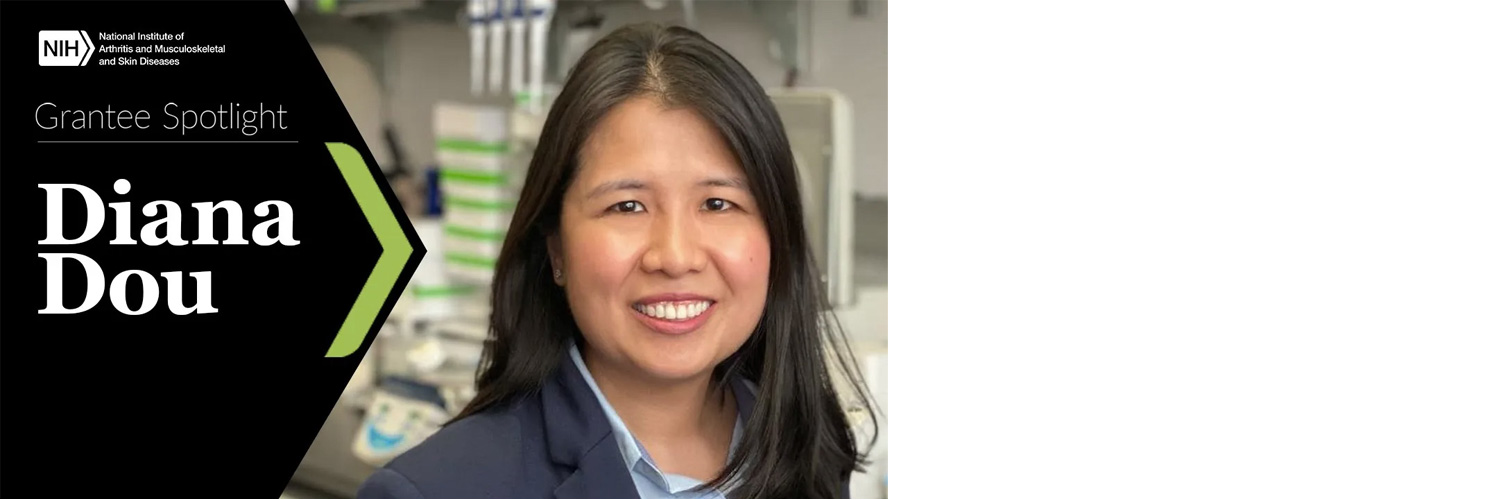
Dr. Dou will be joining IIB this Fall. In the meantime, get to know her better in the interview below.
Briefly describe your upbringing, where you are from, and your education.
I was born and raised in Pasadena, CA, and my hometown friends still like to tease me for going to college at Caltech, which was just a couple miles from the hospital where I was born. My grandparents and parents emigrated from Taiwan and I am the first of my family to be born in the USA. I can speak Mandarin, but I’m told I have a really heavy American accent.
Growing up, my grandparents’ homes were the central hubs of activity for all of us after school so, while I don’t have any siblings, I’ve always been very close to my twelve cousins. We were pretty competitive with each other so whatever my older cousins did, I wanted to do, too, which is how I started learning piano and violin, why I tried to do well in school, and also why I’m a Lakers fan.
My family was pretty thrilled when I got into Caltech for undergrad and could continue coming home for weekend brunches. However, my mom, a through-and-through USC Trojan alumna, was a little dismayed when I decided to go to crosstown rival UCLA for graduate school. I didn’t really believe my cousin, who went to Cal, about how very cold it can get in the Bay Area until I started my postdoc at Stanford and had to use the gloves and parka my aunt sent in a care package!

What inspired you to pursue a career in science and academia?
I’ve always been curious and I used to love magic shows when I was a kid. Unfortunately, magicians won’t answer questions about how a trick works. But in fourth grade, our science teacher did this experiment called Elephant’s toothpaste and, with just a little dish soap and hydrogen peroxide, this huge green tube started foaming out of the beaker, like magic, and he answered all of my questions on how and why it worked and I was able to do the same “trick” by myself. In science, nobody ever refused to answer any of my questions and I eventually got to questions that no one could answer—yet. Trying to find my own answers to understand the magic of the natural world has been a unique adventure ever since.
How do you see your research contributing to the department and the broader scientific community?
I’m hoping to bring fresh insight and perspectives to the great research in IIB and collaborate to explore how long noncoding RNAs (lncRNAs) impact health and development. LncRNAs are special in that they have traditionally been regarded as just genomic “junk”, but in fact they are the dark matter of the genome, the previously invisible structural architects of the genomic universe that we are only now beginning to truly see with the help of rapidly evolving technologies. We will need the help of the broader scientific community to enlist concerted multidisciplinary efforts spanning computation, biophysics, chemistry, immunology, development, and more, to fully understand the roles of lncRNAs in autoimmunity.
Would you discuss any recent publications or projects you’re particularly proud of?
I’m very proud of my main postdoc publication, Xist ribonucleoproteins promote female sex-biased autoimmunity. Autoimmune diseases are complex and poorly understood. We have known for quite a while that the single greatest risk factor for developing autoimmune disease is to be biologically female—80% of autoimmune disease patients are female (XX). In XX individuals, the XIST ribonucleoprotein (RNP) complex (XIST lncRNA + proteins) is required to epigenetically silence one of the two X chromosomes to achieve dosage compensation. Some of the proteins in the complex are also known to be autoantigens, which is how we came up with the hypothesis that the presence of XIST RNPs—particles densely packed with autoantigens on a lncRNA scaffold—in every single nucleated XX cell could be promoting the background of higher autoimmunity risk in females.
This was such a novel concept at the early stages of my postdoc that funding agencies were skeptical of both the hypothesis and that I would have the environment and ability to do the required studies. Fortunately, I had my advisor’s—Howard Chang—complete support and confidence and, while it’s true that the autoimmune aspects were very much out of both our respective training backgrounds and expertise, we were privileged to have a huge, wonderfully supportive network of collaborators to draw on. It took a great deal of teamwork and multiple areas of biosciences to complete the story, but there are now so many different directions to continue further studies it feels as though an entire new dimension has opened for exploration. I’m hoping that more scientists will join us to explore this new dimension.
How do you balance your work and home life?
I’ve come to realize that time is the most valuable commodity, and it is very easy to get completely lost in work tasks, especially if work is very interesting. I’m not naturally an organized person so I use a daily planner to keep track of both important work tasks and personal events and every week I update a list of things I need to do, should do, or want to do. I tend to prioritize lab, but any time my friends or family plan an activity in advance, I’ll put it on my calendar immediately. This keeps my schedule open and flexible for unexpected tasks and events and I’m still able to complete my weekly lists during unscheduled periods.
Many of my closest friends were also my basketball teammates at some point so our idea of fun usually involves a physical outlet—either playing, attending a game, or a watch party. As part of my de-stress regimen, I try to run every day because we’re also a bit competitive in everything we do together. I’ve been fortunate to keep the friends I made as far back as nine years old because we’ve always made time for each other—and very lucky that my best friends since freshman year enjoy running because hardly anyone else will run a half marathon with me!
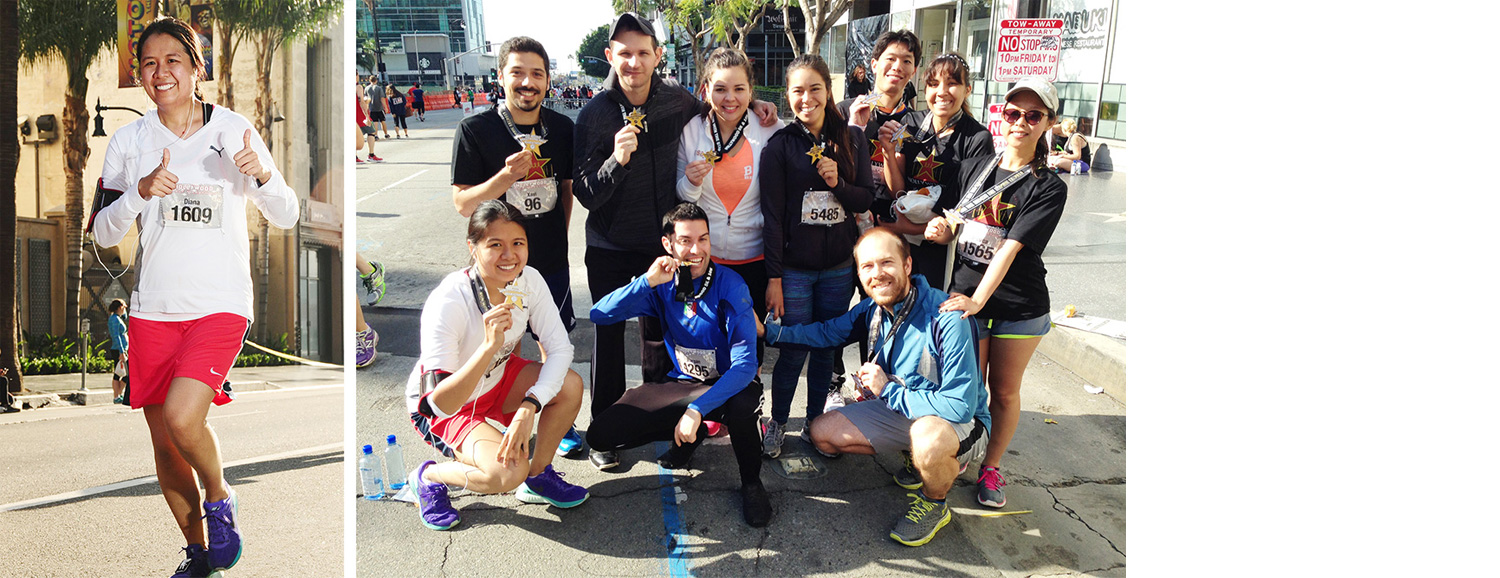
Can you share any experiences or challenges you’ve faced as a female scientist in academia?
At an away game in the visitors’ locker room, I once saw this quote by Henry Ford, “Whether you think you can or you think you can’t, you’re right.” Since then, I try to practice only positive self-talk, but it is very difficult, and I’ve struggled with confidence more often than others realize. It’s easy to slip into a funk and external encouragement sometimes makes all the difference.
Since I’m a little competitive by nature, anytime someone made an offhand remark repeating a college president’s remarks on “innate biological differences” in mathematical and scientific aptitude or I was overlooked for a male classmate, I would remember it and study harder or practice more because I felt the results might be disregarded in the immediate term, but over the long term, no one could claim repeated achievements as a fluke.
I’ve been incredibly fortunate from the time I was in college and onwards to have only had amazing mentors who always advocated for me and pushed me to do things I wasn’t sure I could do. I’m still in touch with my advisors from Caltech, UCLA, and my year at the NIAID and I’ve no doubt that my mentors from Stanford will continue to support me throughout my career. I think that’s an advantage of being in the scientific community—scientists are trained to see the data and value facts over opinions. Unfortunately, social biases still exist, and we are all still immersed and conditioned by society, but I am hopeful that we are continuing to move forward so that unconscious gender biases will one day be a thing of the past.
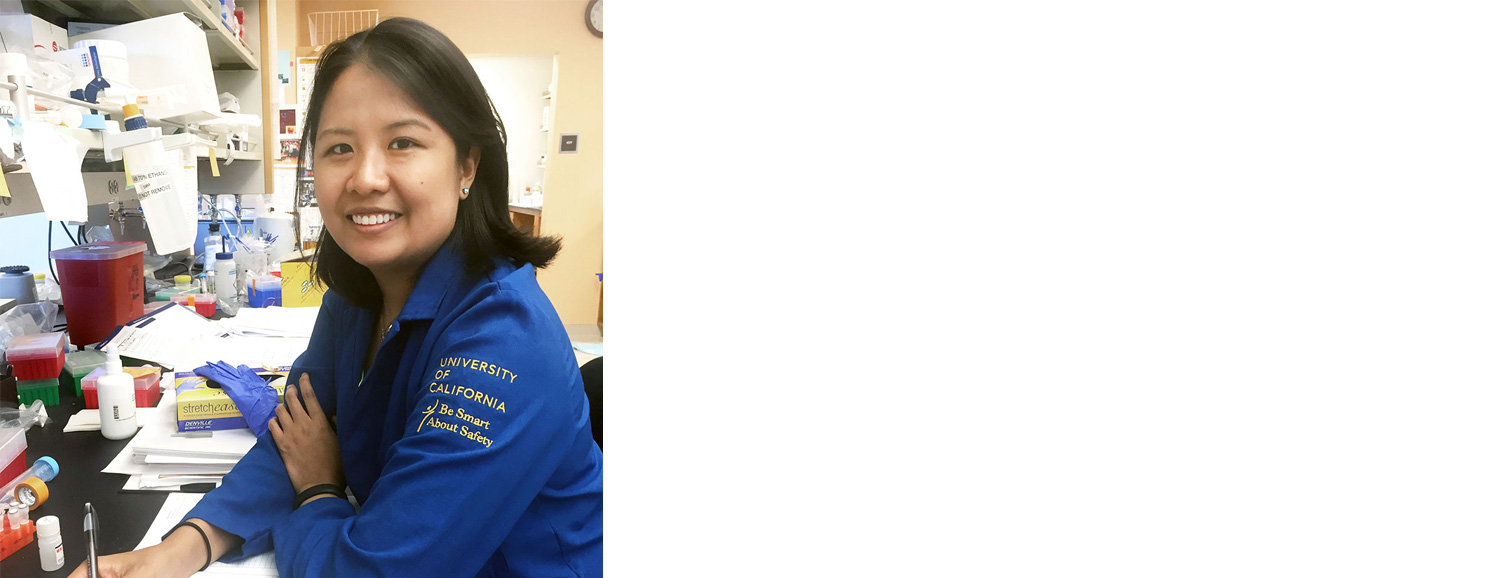
How do you foster an inclusive and supportive environment for your lab members or students?
I try to listen or, at least, let others know that I will listen. I remember being shy and afraid to speak up, so I’ll sometimes message a quieter lab mate and invite them to lunch or the coffee shop. The newer female trainees are often those overlooked or unsettled. In the Chang lab (my postdoc lab), we have a girls’ night tradition and I’ve hosted often at my apartment, especially after the originators graduated. It’s a great chance for all the “Chang Chicks” to meet up outside of lab in a chill environment, welcome new female trainees and put them at ease, and discuss issues or simply just vent. Aside from girls’ nights, we also try to organize happy hours, dinners, and holiday and summer parties off campus for just trainees and techs at least once a month. I know I’ll probably not be able to host lab girls’ nights and trainee happy hours when I’m “the boss”, but I’m hoping to carry on the tradition of coffee shop trips and casual lunches.
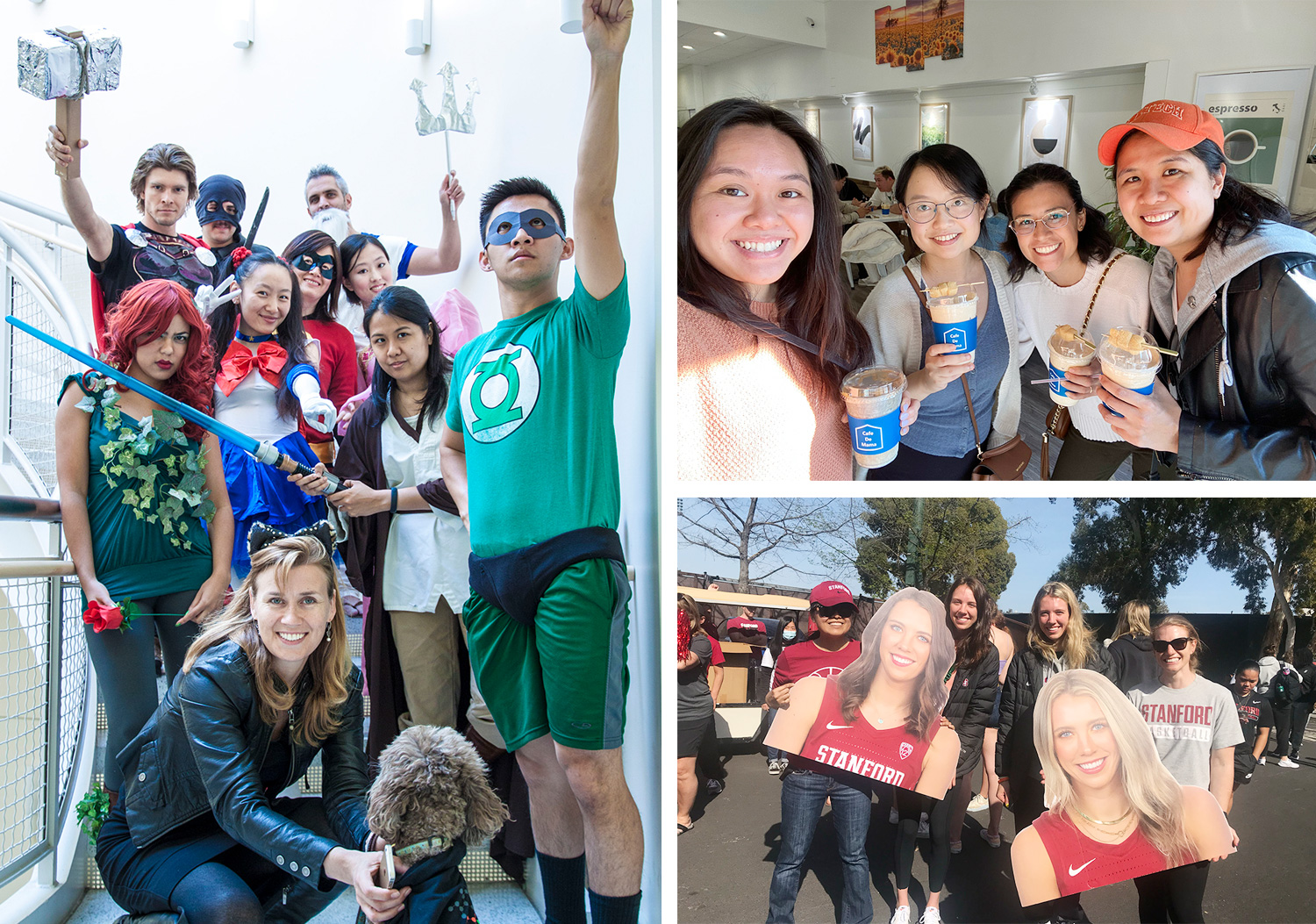
Any other information (personal or work-related) that you’d like to share?
I usually don’t advertise this, but I think it’s important to reduce the fear of being different and speaking up. I have ADHD and I’m in therapy for it. That’s why I must work at being organized and why I have to constantly make so much effort to manage my time. There are days when I feel very productive and generate 8 new figures and deep clean the kitchen, but there are also days when I have my to-do list up but have barely managed to reply to an e-mail by the end of the day. The best I can describe it is that, sometimes, I feel like I’m the little ball whirling around a roulette wheel and I can’t keep from bouncing from section to section and I have no control where or when I’ll land. It’s deeply frustrating to feel like I have no control, and my brain is caught in a roulette wheel spinning without any input from me. But my friends know this about me, and they are still willing to run 13.1 miles or more for me. And my mentors and advisors still think I’m smart and capable. It’s okay to struggle; you’re not alone. It’s okay to forgive yourself for not being perfect. In fact, it’s okay to never be perfect. If you do what you can do, that is enough and that’s a win!
